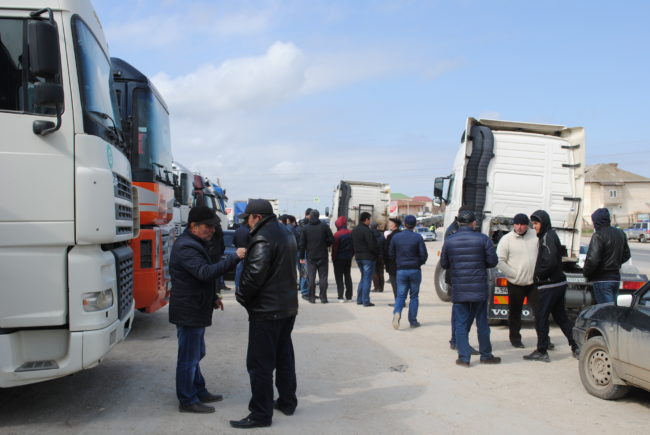
 On 28 April, Daghestani lorry drivers ended their strike against the ‘Platon’ road tax. The strike lasted 33 days in total.
On 28 April, Daghestani lorry drivers ended their strike against the ‘Platon’ road tax. The strike lasted 33 days in total.
One protester, Abdurashid Samarov, told OC Media that they decided to end the strike after meeting with State Duma deputies on 28 April.
‘We wanted to pass on our demands personally to the deputies, and they listened to us. They can’t abolish “Platon”, but they are trying to meet our conditions at a regional level’, Samadov said.
Lorry drivers began to disperse on the evening of 28 April. According to Samadov, some of the protesters have already resumed work, but not all of them.
‘And what can we do? We didn’t expect “Platon” to be abolished, we just wanted to draw attention to this problem. It turned out that Daghestani lorry drivers were the ones who stood the longest. We wanted support from other Russian drivers, but most of them only gave us moral support’, Samadov said.
[Read also: Not indifferent; civil activism surges in Daghestan]
The Russia-wide protest against ‘Platon’ began on 27 March. In the North Caucasus, Daghestani lorry drivers were the first to join the strike. They were later followed by approximately 100 drivers from North Ossetia, and then a smaller number of drivers from Ingushetia, Kabardino-Balkaria, and Karachayevo-Cherkessia. In Chechnya, there were no protests against ‘Platon’.
Protests in Karachayevo-Cherkessia and Kabardino-Balkaria lasted for only a few days, while in North Ossetia, the strike lasted until 19 April. Ingush drivers gave up their protest on 26 April. The strike in Daghestan was held in several districts, with the biggest one held just outside the village of Manas, 30 km south of Makhachkala, where more than 350 heavy lorries were stationed for 33 days.




 2 May 2017
2 May 2017


